Tips to keep your appliances running for the holidays (and years to come)
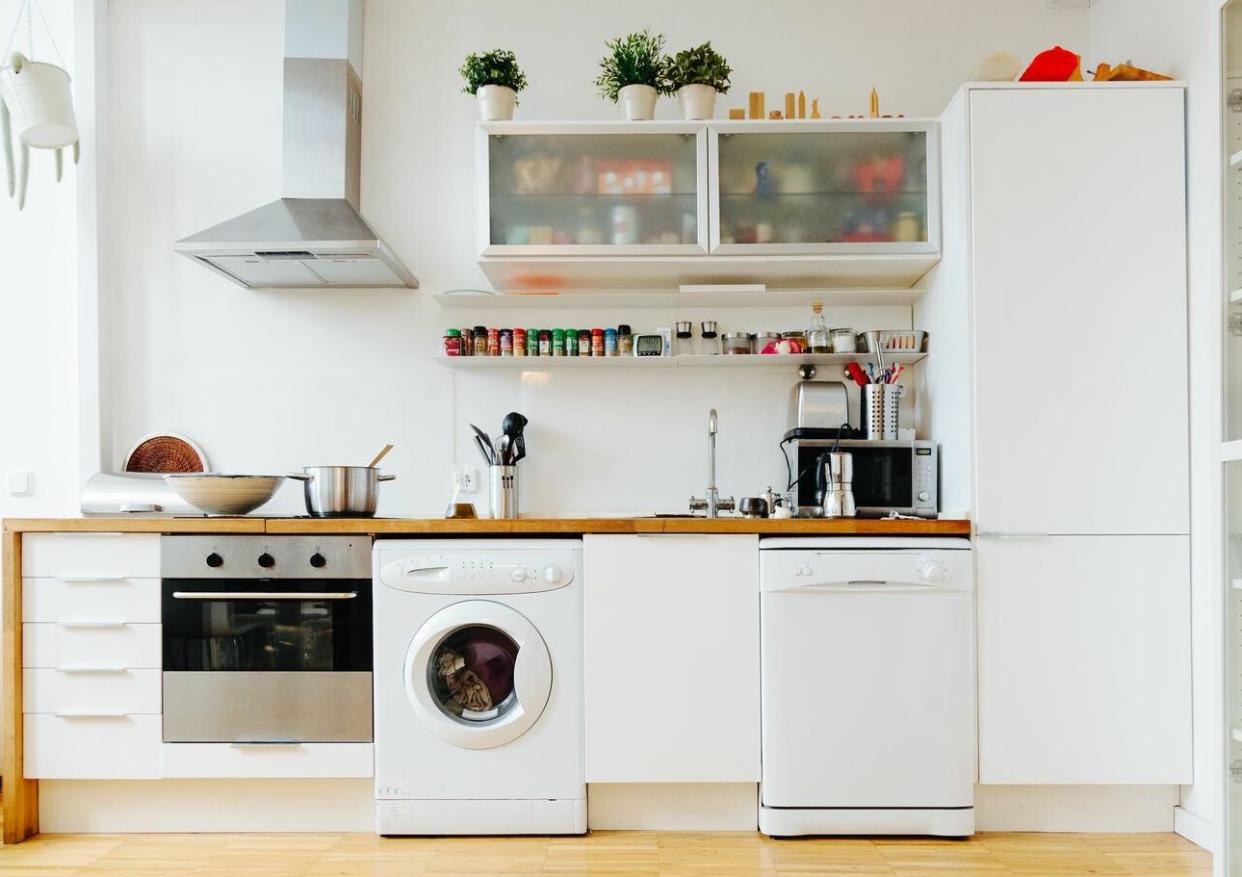
This article originally published on Thumbtack and is syndicated by Cheapism.
Cooking hearty Thanksgiving and Christmas meals, cleaning up before and after guests, replacing old stove or fridge with the new ones you bought on Black Friday and Cyber Monday — it’s a busy time of year for your home appliances. And, unfortunately, they’ll endure a lot of wear and tear. But you can cut down on equipment failure and avoid expensive repairs down the line by practicing good habits.
Here’s a list of maintenance tasks to perform for every major appliance in your home. Before you attempt anything, check your manufacturer’s guide, owner’s manual and warranty. For complicated issues, you may want to contact a local technician. They can easily handle maintenance and repair tasks that are out of your comfort zone.
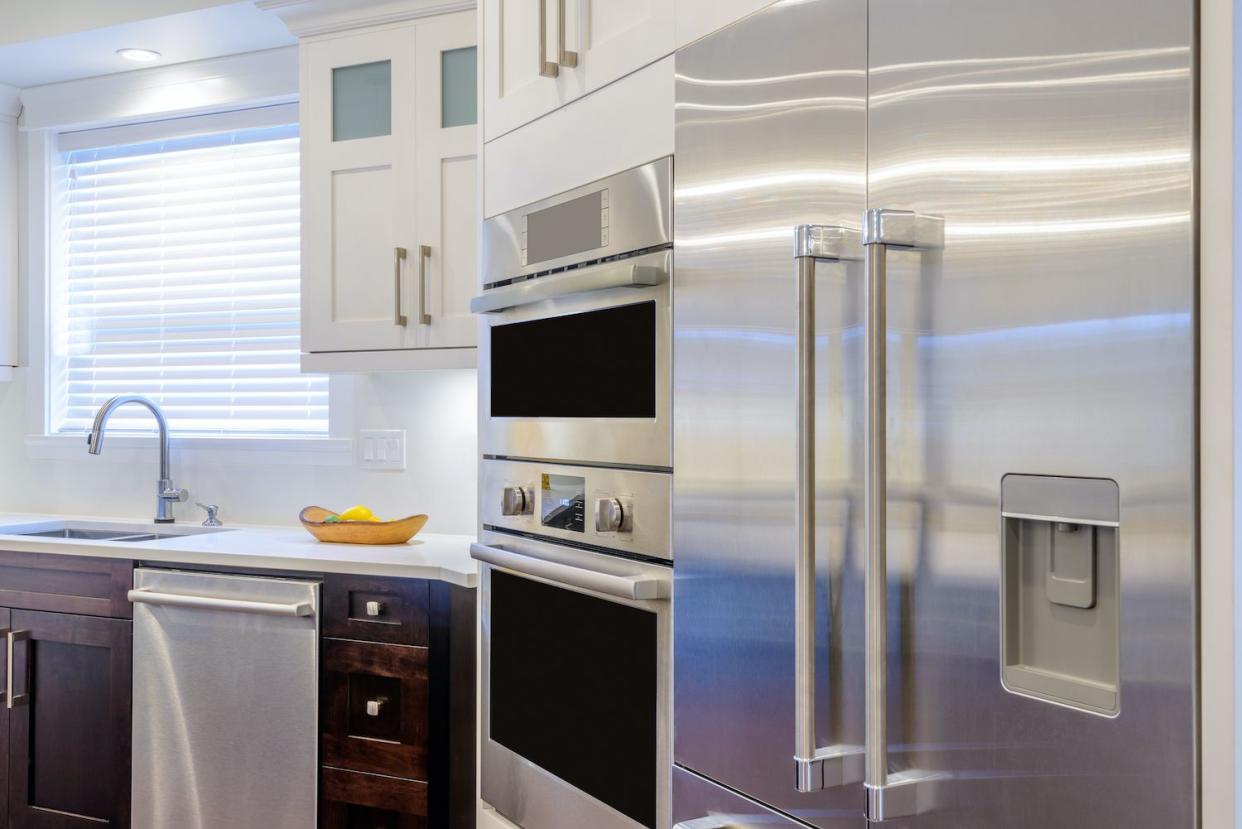
Your fridge and freezer are essential all year round. Use these tips to keep them running efficiently and save you money on energy costs:
Clean your refrigerator’s coils about every six months to one year.
Keep your food covered.
Empty the fridge and freezer and wipe down shelves.
Change the filters.
Keep food away from freezer vents.
Empty the ice in your freezer.
Clean the door gaskets.
Make sure the fridge is level.
Keep the doors closed tightly when you’re done.
Change the light bulbs.
Check and adjust the temperatures as needed.
Clean the drain hole and drip pan.
When to hire a professional: If your fridge is making strange noises, it won’t get cold enough or if you can’t close the door.
Related: How much do refrigerator repairs cost?
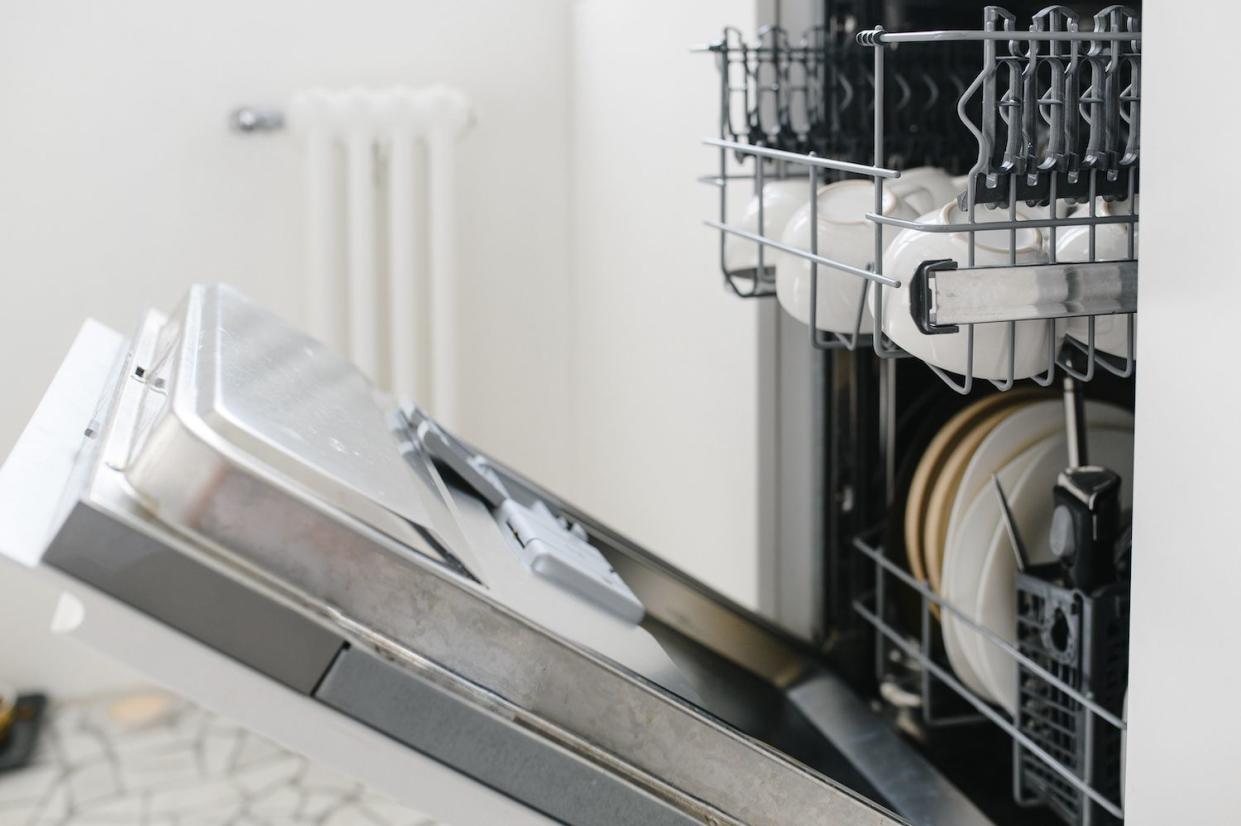
Your dishwasher has a lot of parts: spray heads, soap distributors, electrical components and numerous drain heads. Here’s how to correctly maintain your dishwasher:
Run your dishwasher regularly and don’t forget to empty it after every cycle.
Have your dishwasher’s drain tube, filter and door seal serviced.
Check the drain tube to make sure it’s not kinked.
Check and unclog the drain filter. If it’s broken, you may need to replace it.
Make sure the arms are spinning, and clean them.
Ensure your dishwasher isn’t leaking.
Inspect the seal and gasket.
Clean the gasket.
Clean and wipe down the exterior.
Don’t overload your dishwasher.
Inspect, clean and/or replace the racks as needed.
When to hire a professional: You should be able to handle cleaning your dishwasher. But if it isn’t draining or there’s a leak you can’t fix, it’s time to contact a repair service.
Related: How much do dishwasher repairs cost in your area?
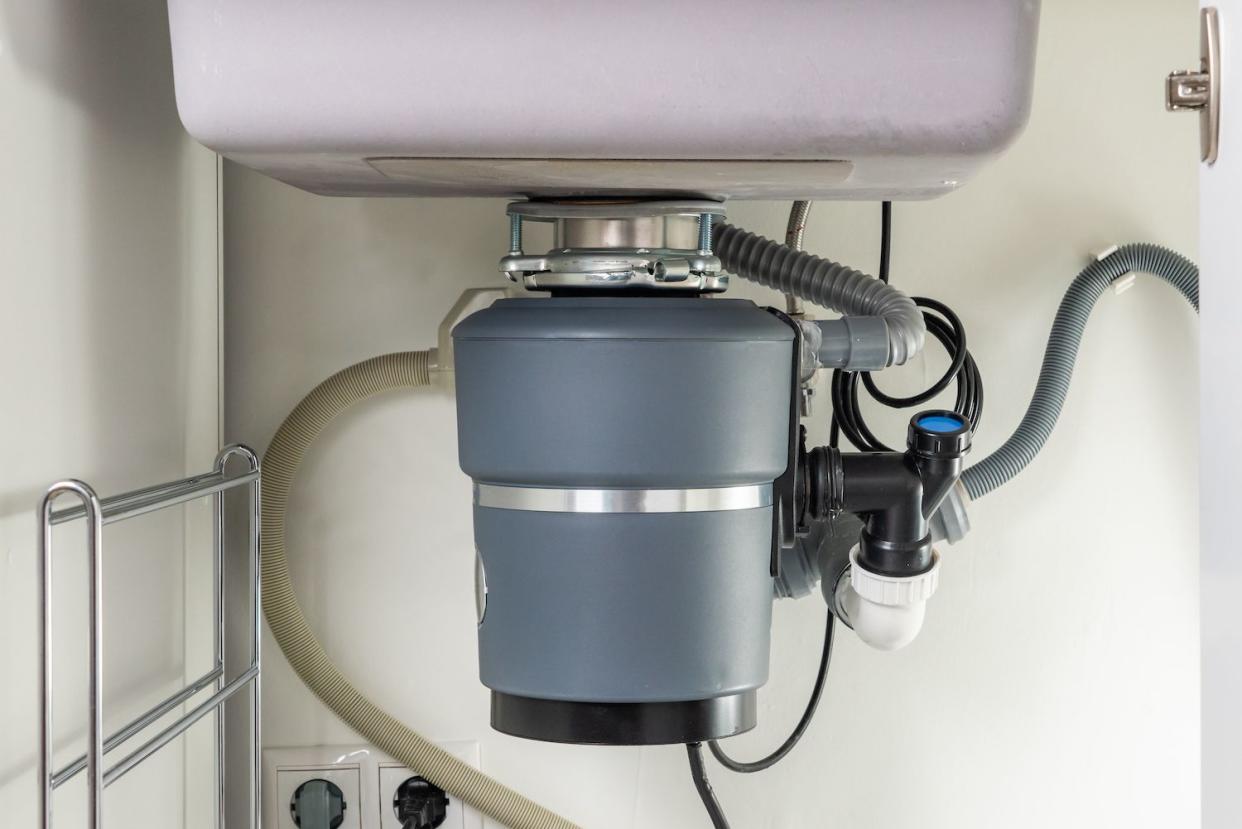
Garbage disposals can devour, well, pretty much anything, but this can occasionally lead to trouble. The easiest way to maintain your disposal is to never put these items inside it:
Banana peels
Potato peelings
Pasta
Fibrous vegetables
Broken glass
Coffee grounds
Eggshells
Grease and oil
Starchy foods
Bones
Oatmeal
Onion skins
Corn husks
Fruit pits
You should also follow these basic garbage disposal maintenance tips:
Run the garbage disposal every few days.
Use a lot of cold water when grinding food waste.
De-grease your dishes with a detergent.
To clean it, put a little bit of ice in your disposal and run it. You can also add a citrus wedge to deodorize it.
When to hire a professional: If your dishwasher is humming and you’re unable to unclog it, contact a plumber or a dishwasher repair service.
Related: How much do plumbers cost near you?
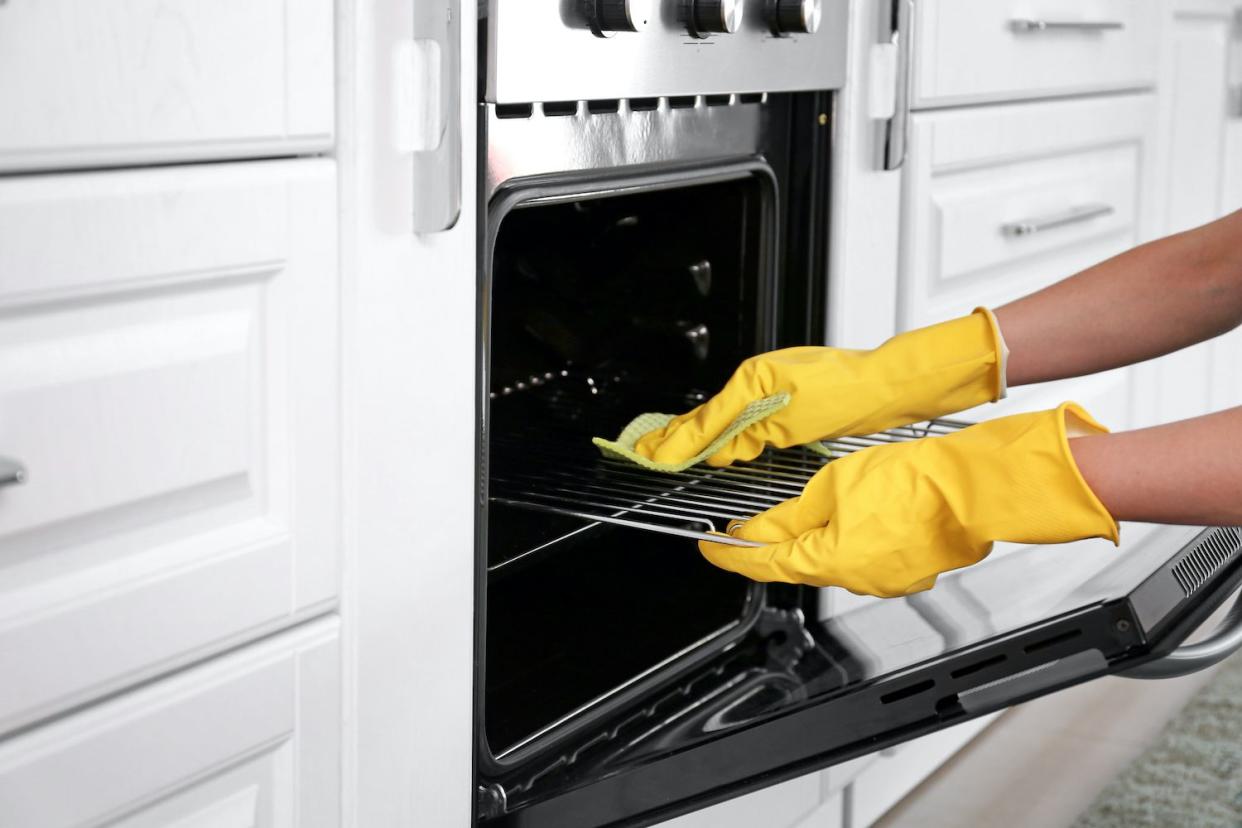
The oven, range and stove are subject to extreme temperatures and plenty of other variables. You should regularly clean these appliances and have them serviced.
Here are some tips for maintaining your oven, range and stove:
Get your oven’s gas lines inspected for corrosion, leaks or breakdowns. Replace gas lines, if needed.
Replace the gas line if you’re installing a new oven.
Inspect your oven’s door gaskets and locks to ensure heat isn’t escaping from your oven.
Clean your oven thoroughly several times a year.
Replace your oven’s broken bulbs.
Use your oven’s self-cleaning feature. Always check the owner’s manual first.
Clean your oven racks.
Clean your gas burners regularly.
Keep your hood, fan and filter clean.
Replace filters as needed.
Use baking and cooking sheets to catch spills and food.
Wipe up spills and food after usage and when it’s cool.
Lubricate blower motor oil cups, if needed.
Don’t set down heavy items on the oven’s door (it may break).
Ensure the temperature is accurate.
When to hire a professional: You can probably handle simple cleaning tasks on your own, but hire an expert to inspect possible damage or malfunctions. Because these appliances often involve fire, gas and/or electricity, it’s important to be cautious. The best way to stay safe is to hire a professional who knows what they’re doing.
Related: How much do appliance repairs cost near you?
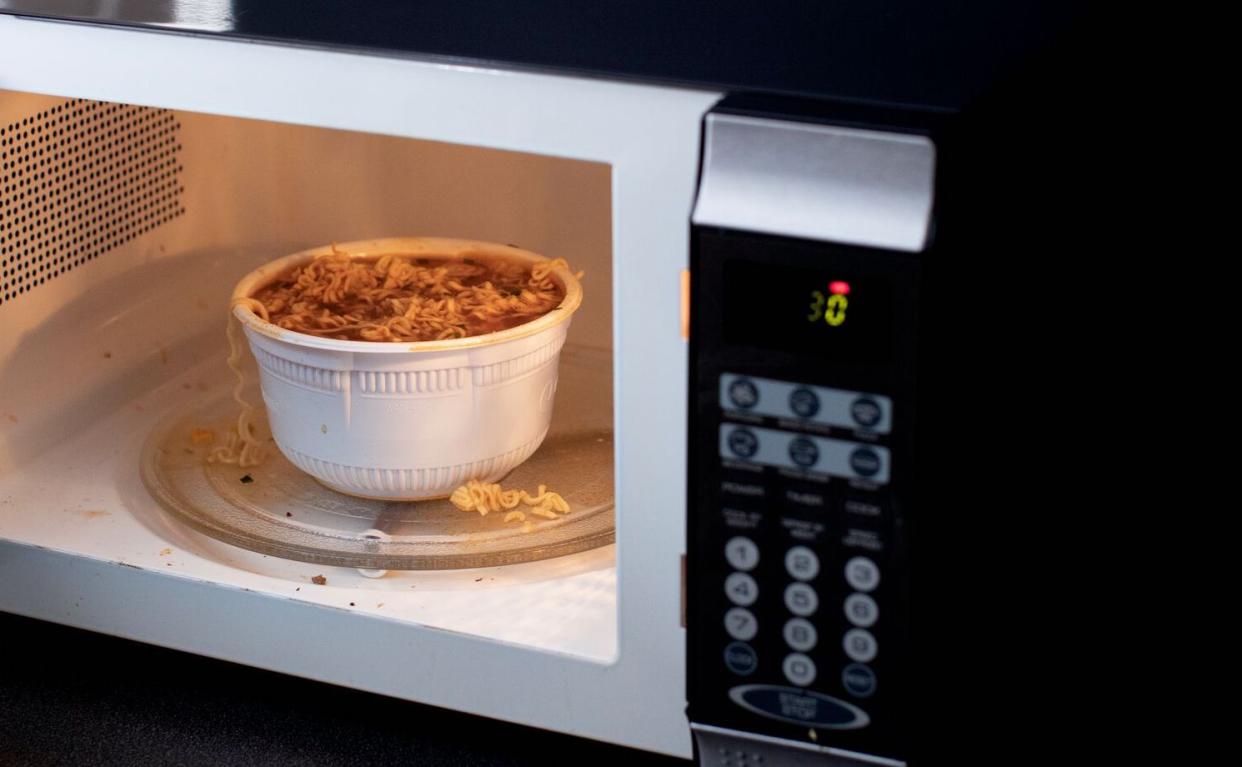
There are several different models of microwaves on the market. Here are some universal maintenance tips for keeping yours clean and functioning smoothly:
Pay attention to strange noises like thumping, squealing or other sounds.
Wipe down splatters right away before they harden.
Cover your food to prevent splatters.
Clean the inside and outside of the microwave.
Clean the grease filter by following the manufacturer’s instructions.
Always use microwave-safe dishes.
Never dry clothing or other objects in the microwave.
Never put metal in the unit.
Don’t close the door too hard — you might damage the handle.
When to hire a professional: Always hire a professional if your microwave needs electronic repairs. If you’re not sure if it’s worth the money to repair or replace your microwave, get an expert’s opinion after they inspect it.
Related: How much do microwave repairs cost?
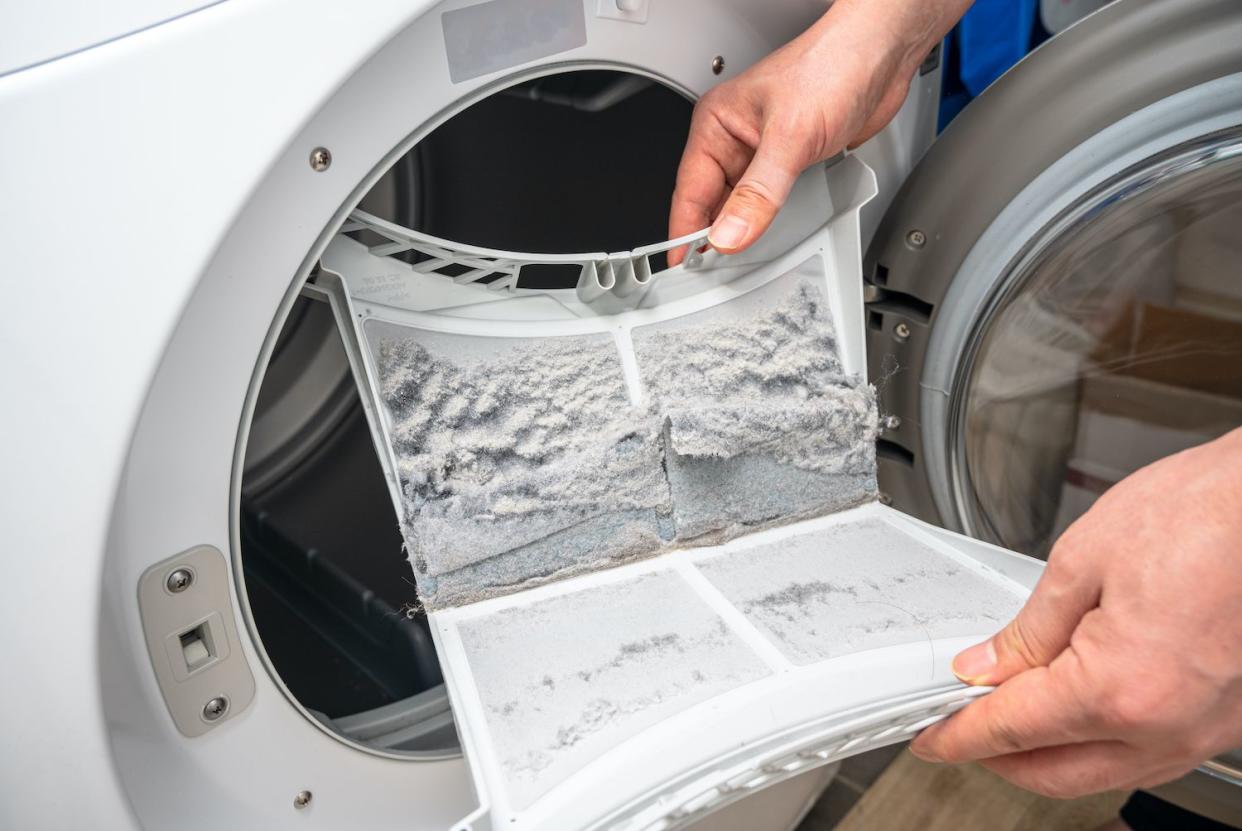
Maintaining your dryer will not only make it last longer — it can also help you keep your household safe. Follow this advice to keep your dryer in top condition:
Never overload it with clothes.
Ensure your dryer is level.
Clean and check the exhaust vent for debris.
Make sure air is coming out of the dryer vent when the dryer is running.
Clear out leaves and debris from the outside vent cap.
Empty the lint filter between every cycle.
Clean the lint screen and lint trap.
Wipe down the drum and clean the interior to get rid of lint.
When to hire a professional: Keep track of how long it takes your clothes to dry — you may need to hire a professional to fix your dryer and improve its performance if it's taking longer than usual. And always consult with a professional if you suspect you need to clean, repair or replace your dryer ducts.
Related: How much does it cost to repair a dryer?
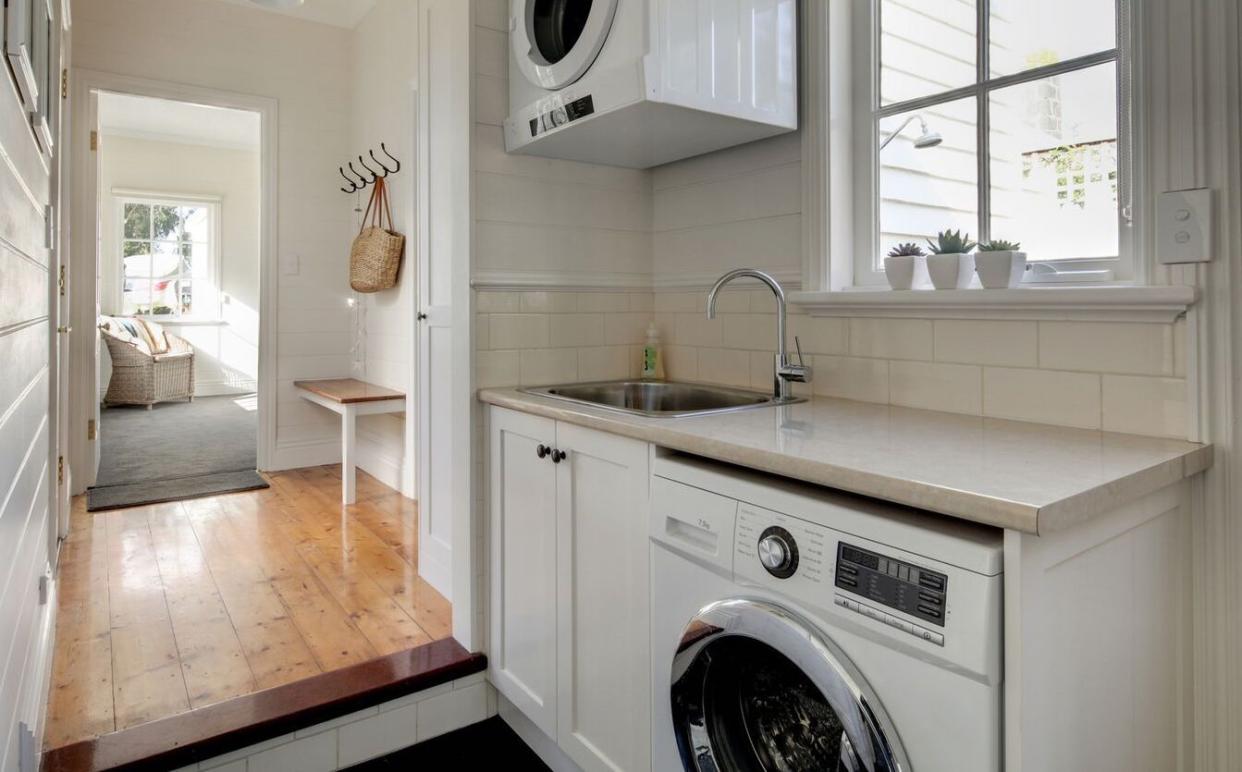
A neglected washing machine can develop hose issues, smells and other problems in your home. Here are some tips to keep your washer in working order:
Don’t overload it.
Address noisy washers.
Clean the lint filter.
Inspect the hoses for bulges or cracks, and replace as necessary.
Use the correct detergent (and the right amount).
Place a drip pan underneath the washer.
Clean the interior, drum, gasket and door.
Keep the door gaskets dry.
Don’t let clean, wet clothes sit in the washing machine when done.
Make sure the washer is level.
Consider getting a drain vent.
Leave the door open between loads to prevent musty odors.
When to hire a professional: If you think your hoses need to be replaced or if you need a major repair, contact a repair technician near you.
Related: How much do washing machine repairs cost?
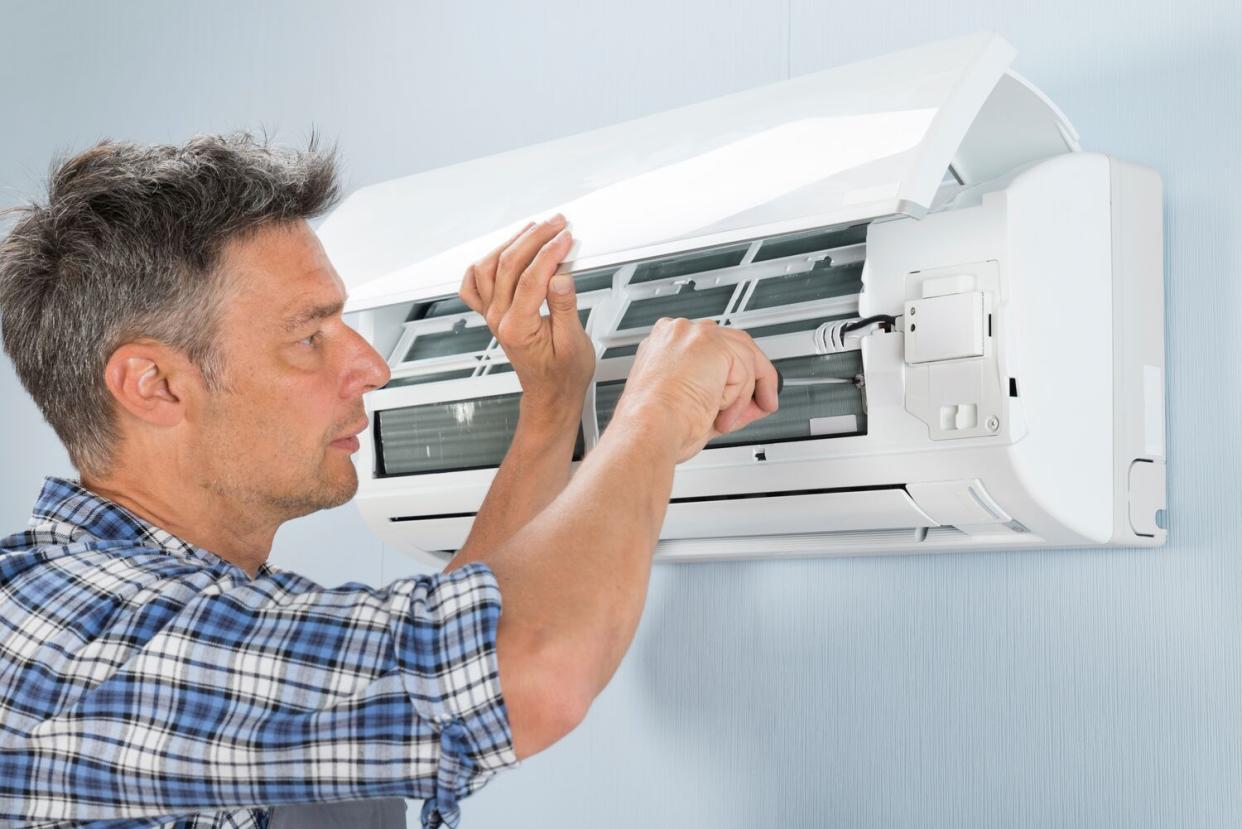
Experts often recommend you should have a professional service your air conditioner and HVAC system once a year. According to the U.S. Department of Energy, a technician will perform the following tasks:
Ensure it has enough refrigerant.
Test for leaks.
Seal leaking ducts.
Test for proper electronic control sequencing.
Measure evaporator coil airflow.
Tighten, clean and fix electric terminal problems.
Adjust belts and lubricate motors.
Compare the thermostat readout with the real temperature.
Throughout the year, complete the following tasks to maintain your furnace and HVAC system:
Make sure the unit is level.
Check the thermostat to ensure it’s working.
Ask a professional to complete a safety and energy audit.
Replace air filters regularly.
Run your heating system before winter arrives.
Get your AC and HVAC serviced and cleaned before the summer and winter.
When to hire a professional: Hire an HVAC technician to service your unit at least once a year. Ideally, you should get it serviced twice — before the hot and cold seasons arrive.
Related: How much does furnace cleaning cost?
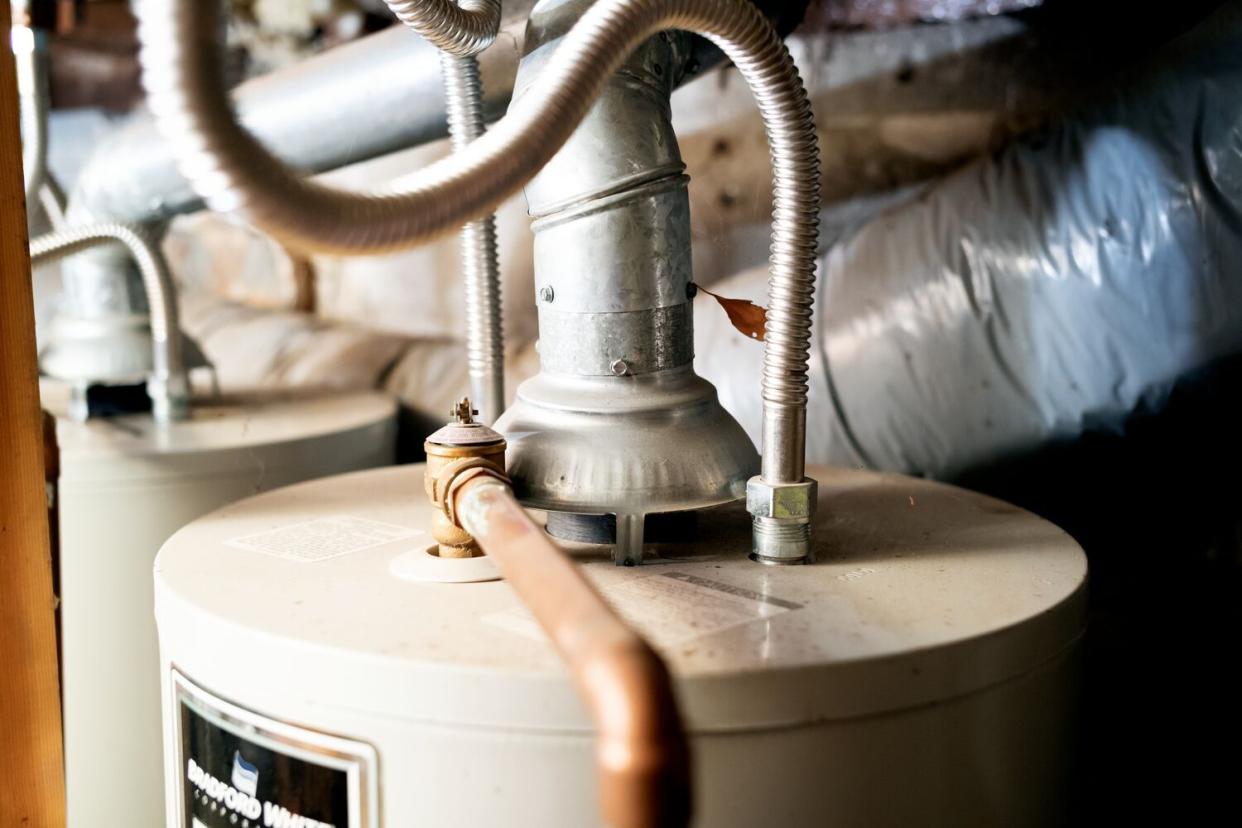
If you want to ensure you have hot water year-round (especially during the winter), stay on top of these maintenance tasks:
Test and replace the pressure-relief valve.
Inspect the anode rod every three years.
Consider insulating older units and the pipes.
Adjust the thermostat to 120 degrees.
Keep an ear out for weird, strange noises (gurgling, groaning, etc.).
Flush and drain a portion of the tank to get rid of sediment.
Consider replacing the heating element on your water heater, if needed.
Put your water heater on the vacation setting when you’re out of town.
When to hire a professional: Your water heater is one of those appliances you probably don’t think about often. If that’s the case, consider hiring a professional who specializes in inspecting and servicing water heaters.

